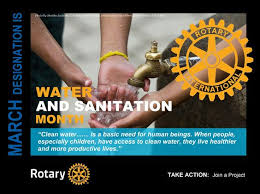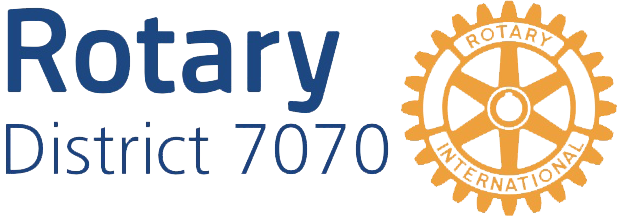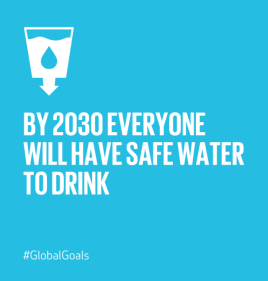
What Is your Rotary Club doing to focus on Water, Sanitation and Hygiene in March 2023? Clean water and sanitation is a human right. When people, especially children, have access to clean water, sanitation, and hygiene, they lead healthier and more successful lives. We don’t just build wells and walk away. Rotary members integrate water, sanitation, and hygiene into education projects. When children learn about disease transmission and practice good hygiene, they miss less school. And they can take those lessons home to their families, expanding our impact.
Read more, right here, for more details....

Clean water is a basic need for human beings. When people, especially children, have access to clean water, they live healthier and more productive lives. However, at least 3,000 children die each day from diseases caused by unsafe water, which is what motivates our members to build wells, install rainwater harvesting systems, and teach community members how to maintain new infrastructure.
While very few people die of thirst, millions die from preventable waterborne diseases, providing the impetus for our members to also improve sanitation facilities in undeveloped countries. Members start by providing toilets and latrines that flush into a sewer or safe enclosure and then add education programs to promote hand-washing and other good hygiene habits.
Ask your friends and associates to Join Rotary and help extend the flow of clean water to everyone.
Give now to support a water project. If your club is looking for a Water, Sanitation & Hygiene project, please contact our District 7070 Chair Richard Mewhinney at rmewhinney@rogers.com . I am sure he will have projects from which you can choose.
Read news about Rotary's work with water and sanitation
Resources & reference
WASH in Schools Target Challenge
Apply for a UNESCO-IHE scholarship (for water and sanitation professionals)
Learn more about our partners
Browse Rotary Showcase for member projects providing clean water
Find a water project If your club is looking for a Water, Sanitation & Hygiene project, please contact our District 7070 Chair Richard Mewhinney at rmewhinney@rogers.com . I am sure he will have projects from which you can choose.
Contact our Rotary International Areas of Focus manager for water and sanitation: Erica Gwynn Water and Sanitation 847-866-3232 erica.gwynn@rotary.org English and Spanish
Be sure to check our the Water , Sanitation & Hygiene Rotary Action Group (WASH RAG) at their new website: wash-rag.org : The WASH Rotary Action Group was formed in 2007 by a group of Rotarians, recognized by Rotary International, and focused on WASH projects. Since then it has facilitated many hundreds of projects – helping clubs find partners, ensuring sustainability, stressing the importance of a needs-driven approach, and developing best practices. We encourage a holistic, integrated approach in which water is not the end in itself, but is rather the means to a better life and livelihood in the community. Most importantly, WASH Rotary Action Group links water and sanitation to improved hygiene, better health, and empowerment of the community – especially women, irrigation and agriculture, education and literacy and, ultimately, child mortality.

